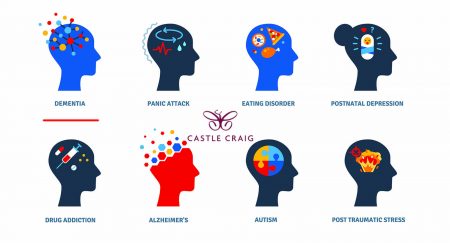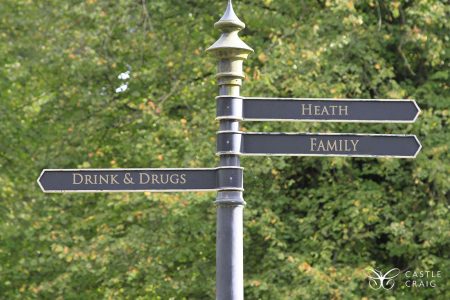Table of Contents
The 12 Step programme, a self-help strategy first developed by Alcoholics Anonymous (AA), has been a cornerstone of addiction treatment in many parts of the world for decades. However, it is not the only approach to rehabilitation from addiction. Alternative models have emerged that offer different approaches, aims, and techniques for recovery. In this article, we will discuss some of the alternatives to 12 Step treatment for addiction rehab and their potential benefits.

Download Our Brochure
Alternatives to 12-Step Programs & How Addiction Treatment Has Evolved
Addiction treatment is not an exact science and has undergone significant changes over the centuries since Roman historian Pliny the Elder advocated (in AD 77) putting putrid spiders in the drinking glasses of alcoholics (the first recorded aversion therapy). As understanding of addiction increased and attitudes changed, there have been generally improved outcomes for people struggling with all kinds of behavioural and substance-based addictions, but opinion remains divided on which treatment is best.
In the 18th century, alcohol addiction was viewed as a moral failing rather than a medical condition. People with drinking problems were often sent to workhouses or prisons, where they would receive punishment and little to no treatment for their addiction. This approach still lingers in some parts of the world, where repeated public drunkenness can land you a prison sentence.
The British Society for the Study and Cure of Inebriety was formed in 1884 and since the 1920s, the UK policy toward addiction treatment has been principally guided by medical practitioners resulting in a more compassionate approach compared to say, the United States, where addiction was for many years deemed a subversive and criminal activity following the Harrison Narcotics Act (1914) and the 1920 Volstead Act (alcohol). Soon after the ending of Prohibition in 1933, Alcoholics Anonymous was conceived and attitudes became kinder.

Addiction Treatment in the UK
Addiction treatment in the UK continues to evolve. There is a greater emphasis on person-centred care, with a focus on meeting the individual’s unique needs and preferences. Treatment is increasingly delivered in community settings, with a range of services available to help people with addiction (although hampered by funding cuts and staffing problems), including medication-assisted treatment, counselling, and support groups. The most recent developments reflect the digital revolution throughout society in general with teletherapy taking the place of face-to-face meetings and therapy chatbots (interactive therapy apps on mobile phones).
Treatments Available Today
There is now a variety of treatments available to people suffering from addiction disorders. In general, almost any addiction can be treated in more than one manner although some addictions lend themselves better to certain types of treatment. For example, total abstinence as a goal works for substance misuse but obviously not for eating disorders.
Goals of Treatment for Addiction
The end goals of addiction treatment can vary considerably depending on the expectations of the addicted person and the care provider. Complete abstinence is not for everyone although some alternatives – such as a good degree of control over one’s disorder – can be for many just an illusion. Alternative goals may include maintenance and harm reduction (such as using methadone instead of heroin). Deciding factors may include cost, human resources and practicality. A return to a life of happy sobriety may be desired by many but this can often be a costly and time-intensive process (such as residential rehab) that is beyond the means of a lot of people.
Everyone Is Different
No single treatment is right for everyone. Addiction is a highly complex disorder where factors such as genetics, significant life events, and cultural and social pressures can play significant parts. A combination of two or more approaches is often suitable and any co-morbid mental health issues such as depression or PTSD should be addressed at the same time.

Free Addiction Assessment
Treatment Choices
The main treatment choices in the UK are between care in the community (including attendance at self-care groups such as Alcoholics Anonymous) and residential rehab, or a combination of both. A residential setting is most likely to offer a wider range of treatments than day-care in the local community but is not suitable for everyone. Care in the community can vary greatly according to location and careful research into all possible services is advised. Here are some types of treatment to consider:
Treatments Based on Self-Help and Peer Support
Millions of people have overcome all types of addiction without any form of professional counselling or medical supervision simply by following a programme of self-help, usually, the 12 Step model first conceived by AA pioneers Bill W and Dr. Bob in 1935 in the USA. Based on personal responsibility, rigorous honesty, and spiritual growth, this highly successful movement is open to anyone with the desire to stop their addiction.
The worldwide network of like-minded members provides inspiration through support and the power of example. Their meetings and the 12 Step programme of recovery represent a basic and effective form of therapy. However, self-help is not confined to the 12 Step movement – successful alternatives include SMART Recovery which provides meetings and support but avoids the spiritual aspect and does not accept addiction as a form of the disease. Other similar organisations offer support programmes of a secular nature such as the Secular Organisation for Sobriety (SOS).
Treatments Based on Medication and Counselling
These combine the use of drugs to mitigate withdrawal symptoms, cravings and physical dependence generally. The treatment is most effective when combined with counselling to address the psychological aspects of dependence and should always be tailored to the needs of the individual. Examples of such drugs are Naltrexone which blocks much of the euphoric effects of alcohol and most opioids and Buprenorphine which gives a long-lasting reduction of cravings and withdrawal symptoms for opioids. Any such drugs can be dangerous if misused and their use should always be carefully monitored.
Treatments Based on Maintenance and Harm Reduction
Where complete abstinence is not possible (whatever the reason) then an alternative strategy may be employed, prioritising harm reduction and improvement in quality of life. An example is the methadone programme for Heroin dependent people offered for many years by the Scottish government. Combined with proper supervision and other safety measures such as needle exchanges, this programme has helped many addicted people to cope better with their life problems although it has not directly addressed their need to quit drugs altogether.

Treatments Based on Aversion and Other Deterrents
Drugs such as Antabuse (Disulfiram) produce a highly unpleasant physical reaction when alcohol is ingested afterwards. In extreme cases, this can be life-threatening. It can have similar effects when cocaine is ingested. This is therefore a type of aversion therapy which must be carefully prescribed and closely monitored. Antabuse is only suitable for relatively few people – mostly those who are highly motivated for abstinence but subject to strong incentives to drink as well.
Other forms of aversion therapy that were used in previous centuries such as electric shock treatment are not now employed in the UK for ethical and practical reasons. Non-addicted people are often surprised that the very obvious consequences of addiction are not in themselves a sufficient form of aversion but sadly for addicts, they seldom think like that.
Treatments Based on Behavioural and Cognitive Counselling
CBT(Cognitive Behavioural Therapy) is a type of psychotherapy that focuses on changing negative thought patterns and behaviours. It has been shown to be effective in treating addiction by helping individuals identify triggers, manage cravings, and develop coping strategies. One of the main benefits of CBT is its flexibility. It can be adapted to the specific needs and challenges of each individual, and it can be integrated with other types of treatment, such as group or family therapy.
CBT also tends to be less confrontational than the 12 Step approach, which may appeal to some individuals who, for example, feel resistant to the spiritual component in a standard 12 Step treatment. CBT is based on the idea that thoughts, emotions, and behaviours are interconnected and that changing one can lead to changes in others.
In addiction treatment, CBT can help individuals identify negative thought patterns that contribute to their substance use, such as beliefs that they are weak or that they cannot cope with stress without drugs or alcohol. The therapist works with the individual to challenge these beliefs and develop practical coping strategies. It can be especially effective when combined with medication-assisted treatment (MAT) for opioid or alcohol use disorders, as it can help individuals manage the psychological aspects of addiction while the medication reduces cravings and withdrawal symptoms.
Motivational Interviewing (MI) is a client-centred therapy that aims to help individuals identify and resolve ambivalence about change in a non-judgmental manner. The therapist works collaboratively with them to explore their concerns and goals. It can be effective in helping people who have tried and failed to quit using substances in the past, by identifying the underlying reasons for their relapse and developing strategies to prevent future relapses. MI is based on the idea that individuals are more likely to change when they feel motivated and confident in their ability to change.
Holistic Treatments – these have become increasingly popular in addiction rehabilitation as more people seek natural, non-invasive ways to address the physical, emotional, and spiritual aspects of addiction. Holistic treatments focus on the whole person, including their physical health, emotional well-being, and spiritual connection, and seek to treat the underlying causes of addiction rather than just the symptoms.
Acupuncture, mindfulness, meditation, Yoga, and nutrition are all aspects of the holistic approach that can bring additional acceptance and understanding to the recovery process. These techniques work particularly well with those highly motivated for sobriety or those who have already dealt with challenges in the recovery process such as denial, anger, or trauma issues.

Technology Use in Treatment
Technology is undoubtedly causing treatment methods to evolve in ways that are both helpful and dangerous. People can now access a source of therapy whenever and wherever their need occurs, but this may cause them to become too reliant or indeed addicted to the technology itself. The genie is now out of the bottle. Some organisations, including the NHS, are starting to use chatbots for therapy. Our article on the chatbot phenomenon ‘AI in Addiction Therapy. How Would You Feel if Your Therapist Was a Chatbot?’ explores this further.
What Treatment Would Be Best for You?
All types of addiction treatment have the merit of a kind. Past studies (none very recent) have shown that there is little to choose between the 12 Step, Cognitive and Motivational approaches mentioned above, in terms of outcome (although 12 Step followers have the great advantage of a global continuing support system). Finding the treatment that works best for you will depend upon your personal circumstances because nurture, nature, and all kinds of life events have a bearing on who you are and what you need to change.
For most people, a combination of several types of therapy brings the most success. Recovery is for life and a therapy that at first gives you the challenges you may need in order to change your unhealthy attitudes may not work so well for maintaining happy sobriety later on. The important thing is to seek treatment without delay – perhaps try a 12 Step meeting near you. Addiction becomes progressively worse with time so the sooner you seek help, the better.
At Castle Craig, we assess each person carefully to produce a treatment plan based on their individual needs. This plan is flexible so that it can be adapted if different approaches are needed. Our programmes combine 12 Step philosophy with cognitive behavioural therapy and a range of holistic therapies too. Individual and group therapy is provided to help you work on your issues together with informative lectures and videos. There are also practical workshops on family matters and relapse prevention.
If you are worried that you or someone close to you might have an addiction problem, please don’t hesitate to give us a call, in complete confidence. We are always ready to discuss your needs and advise on the best way forward.




